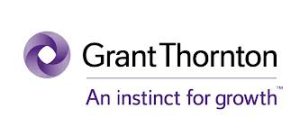CFOs Pessimistic About Short-Term Economic Improvement

“With the economy in a fragile recovery, CFOs are most concerned about rising healthcare costs when it comes to compensation and benefits,” said Stephen Chipman, chief executive officer of Grant Thornton LLP. “Most companies will continue to see a significant increase in healthcare costs unless they have taken proactive steps to promote wellness and better utilization of healthcare benefits, which can help ease the increase of these costs.”
In order to improve economic optimism, 45 percent of surveyed CFOs see deficit reduction as the top initiative for boosting the economy while 27 percent feel that job creation takes the top spot. Nearly half of respondents (46 percent) do not agree that tax incentives are the solution to the woes of the overall economic situation. But 30 percent think that direct tax incentives for hiring new workers could grow the general workforce.
“CFOs are in a prime position to judge the health of the economy, as they have an inside look at their companies’ hiring practices as it relates to financial health of the organization,” added Chipman. “It remains to be seen how upcoming events, such as the Presidential Election, will impact that outlook.”

